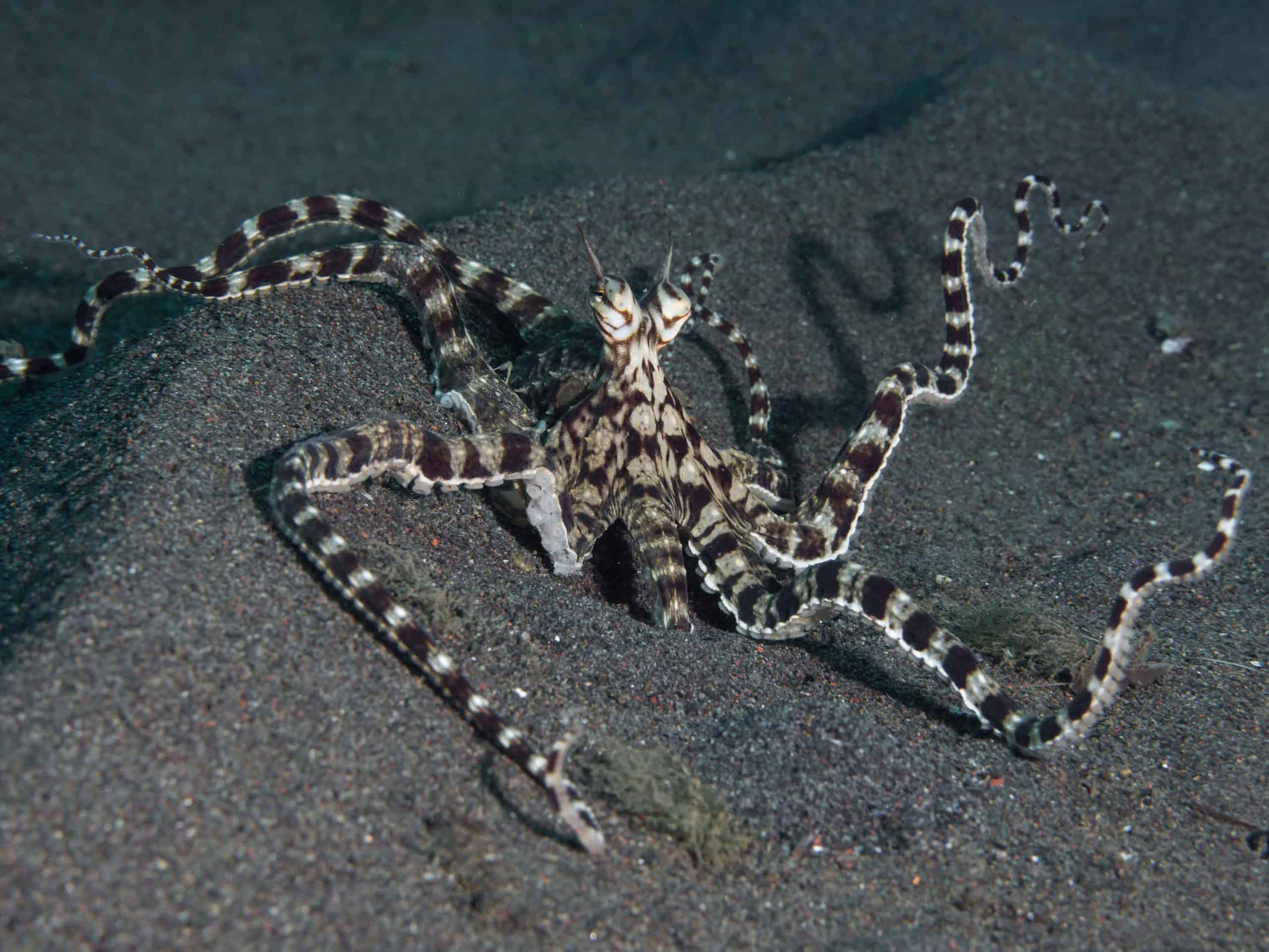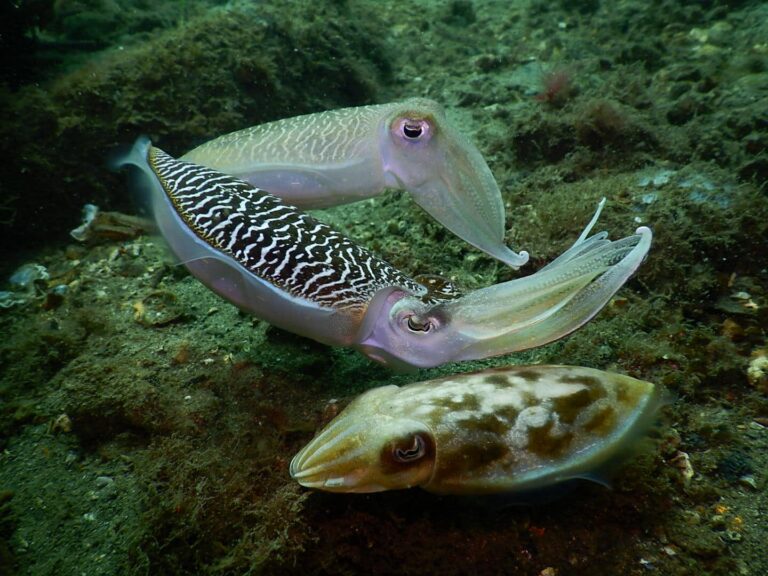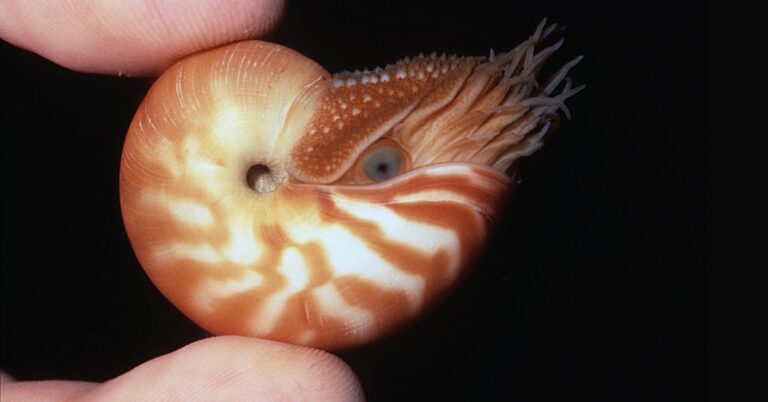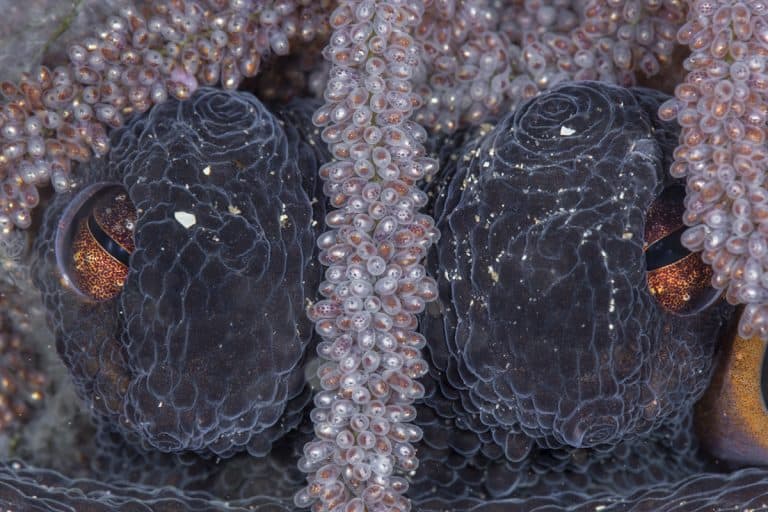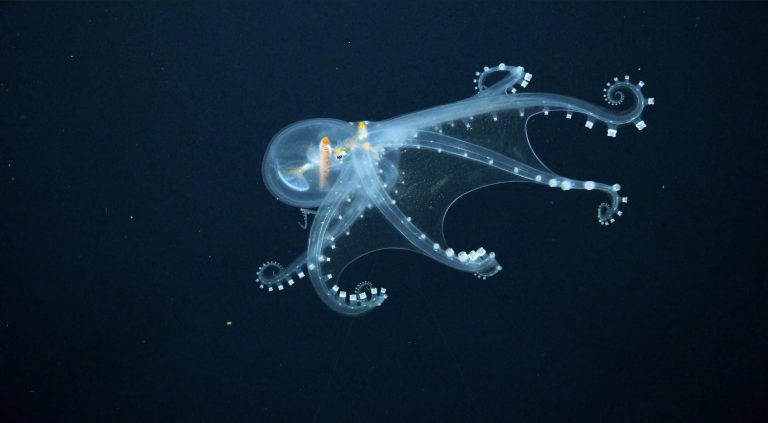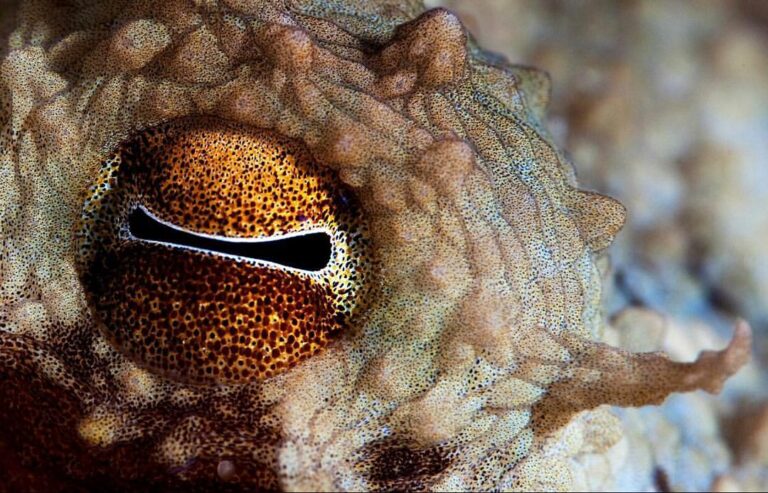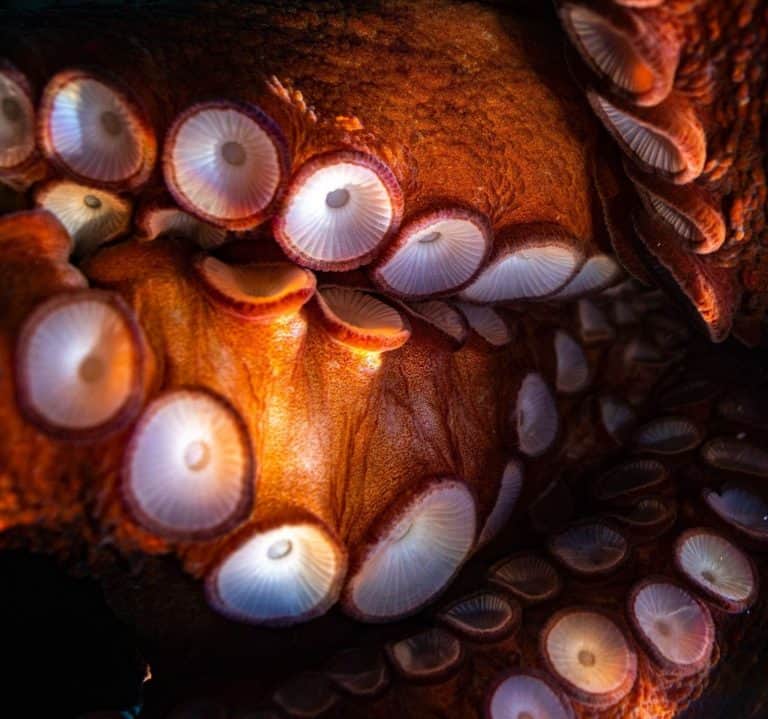7 Fun Facts About The Majestic Mimic Octopus!
Trickery is the name of the game for the Mimic Octopus. With their ability to change into AND act like many different venomous and bad tasting species, they can cruise along the shallow sandy bottoms of the ocean with confidence. The only way these non-venomous and soft-bodied octopuses can do this is by expertly duping predators into thinking they are something besides a delicious meal. Let’s learn more Mimic Octopus facts and everything there is to know about this majestic creature!
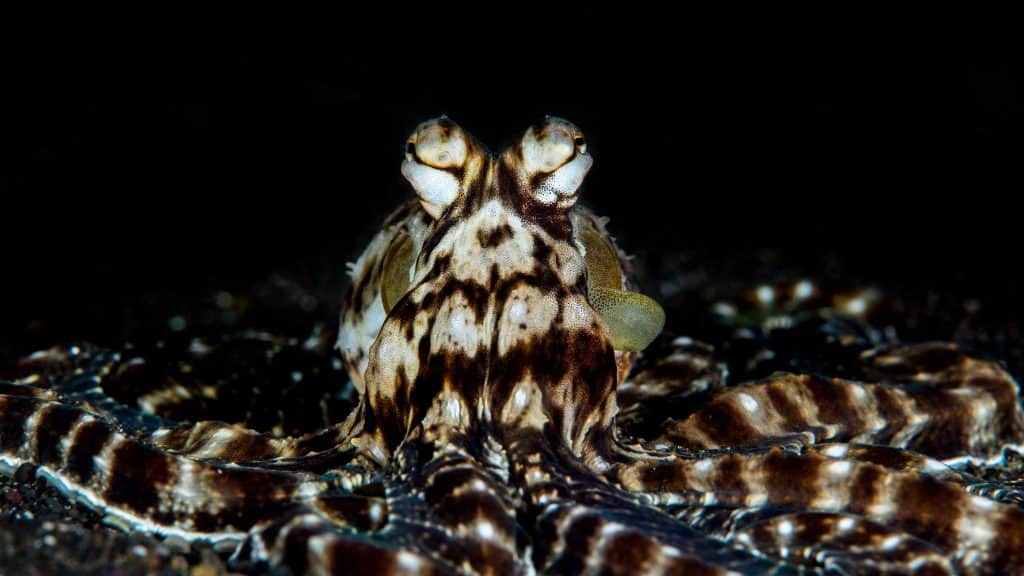
The Mimic Octopus, Thaumoctopus Mimicus, does not only elude predators but has also gone undetected by humans for a long time. It was first ‘discovered’ in 1998 in a muddy river mouth off the coast of Sulawesi, Indonesia.
These smaller octopuses, growing a total length of about 2 feet (60 cm), spend their time on the muddy seafloor hunting small crustaceans and fish. Most octopuses are nocturnal which means they are active during the night, but not the Mimic Octopus!
Because of their shapeshifting abilities, they are able to be active during the day, hiding in plain sight or look convincingly like venomous species that predators, like small sharks and barracudas, know to stay away from.
7 Fun Facts About The Mimic Octopus
With so many of you asking us questions about the Mimic Octopus on our Facebook and Instagram posts, we wanted to share some more fun facts about this majestic octopus.
Did You Know They Are Subterranean Experts?
A Mimic Octopus’s relaxed coloring is a drab mottled brown that allows them to blend in well with the dull sandy and silty bottoms they call home.
Unfortunately, they only go undetected if they don’t move which of course would be impossible to do forever.
🐙 Octopus Fun Fact
If they need a rest during the day, they can wiggle themselves into the sand with just their eyes poking out to keep an eye on their surroundings. At nighttime, they hide in little burrows that they make on the sandy floor.
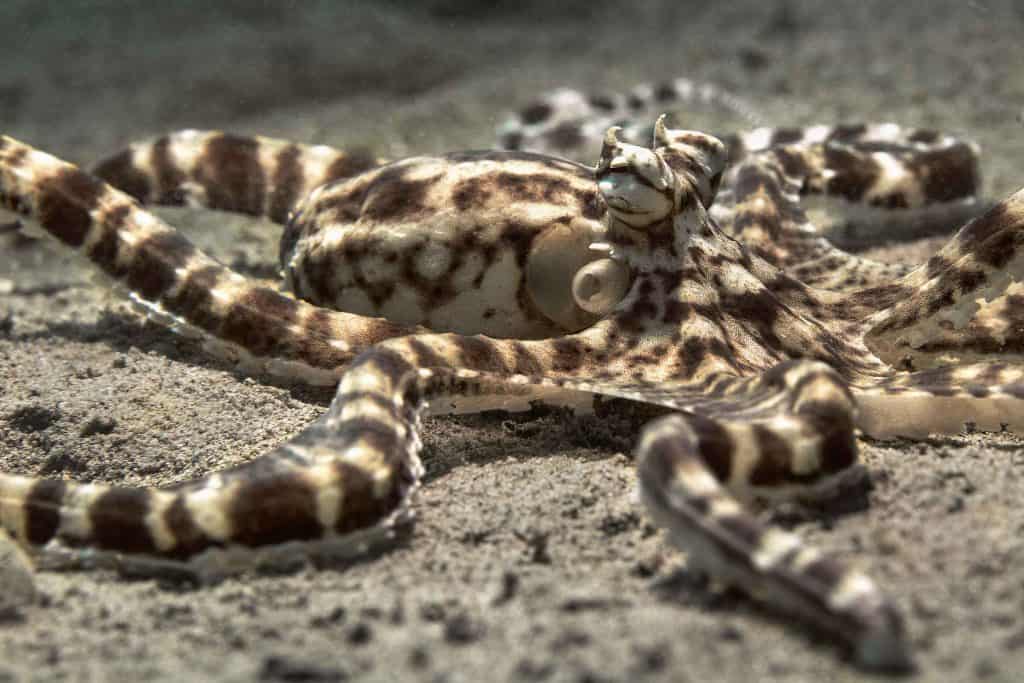
The Ocean’s Greatest Shapeshifters!
Okay, this is one of my favorite Mimic Octopus facts.
Like almost all octopuses, the Mimic Octopus has the wonderful ability to change its skin color through tiny pigment sacs all over its body called chromatophores. This allows them to become a watery version of Mystique from X-Men.
Changing in the blink of an eye, the mimic octopus can re-create itself into 15 (and possibly many more) venomous creatures that live in their surroundings.
3 Types Of Creatures The Mimic Octopus Is Known For
Below are three of their well-documented mimics:
- Sole Fish – Sole fish are flat and move across the ocean bottom with some speed. To mirror this toxic fish, the Mimic Octopus will arrange all its long arms behind its body and use jet propulsion to match a sole fish’s movements. To pretend to be a stingray, they use this same movement but drag one arm behind them.
- Lionfish – The lionfish is a brown and white striped fish with 18 venomous spines on its body. The Mimic Octopus matches their coloring while spreading out its arms to match the lionfish’s long spines. Seeing this, a fish will think twice before taking a bite not wanting to deal with getting stabbed in the mouth while it’s attempting to eat a meal.
- Sea Snakes – To simulate the banded sea snake, the Mimic Octopus tucks itself into the sand or a hole while sticking 2 of its arms out in opposite directions. It displays black and white bands like that of the sea snake while also impersonating its undulating movements.
Okay, you can’t tell me that’s not awesome?!
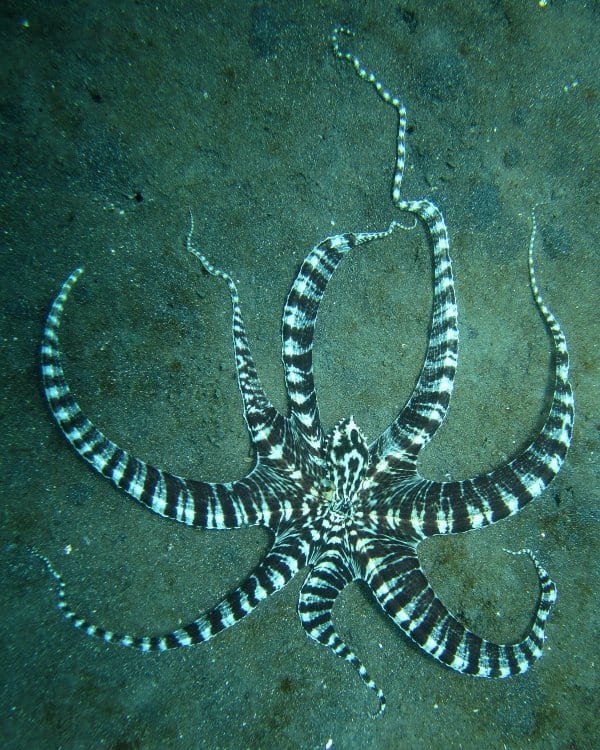
What Other Animals Can They Mimic?
While scientists have not yet discovered the full range of mimic possibilities, SCUBA divers have reported Mimic Octopuses resembling:
- Anemones
- Stingrays
- Mantis shrimp
- Jellyfish
- Crocodile snake eels
- Seahorses
- Feather stars
- Nudibranchs
- Brittle stars
- Sponges
- Tube worms
- Colonial tunicates
Just to name a few!
They can even mimic an animal’s mate, like a crab, and lure them into striking distance. The poor crab, who thinks he has finally found love, gets eaten instead.
🐙 Octopus Fun Fact
As impressive as these impersonations are, they don’t always fool a predator.
In some instances, they may be just enough to startle the predator so that the octopus has time to flee. Mimic Octopuses also have ink which they can deploy to add extra confusion to a hungry octopus hunter while they make their escape.
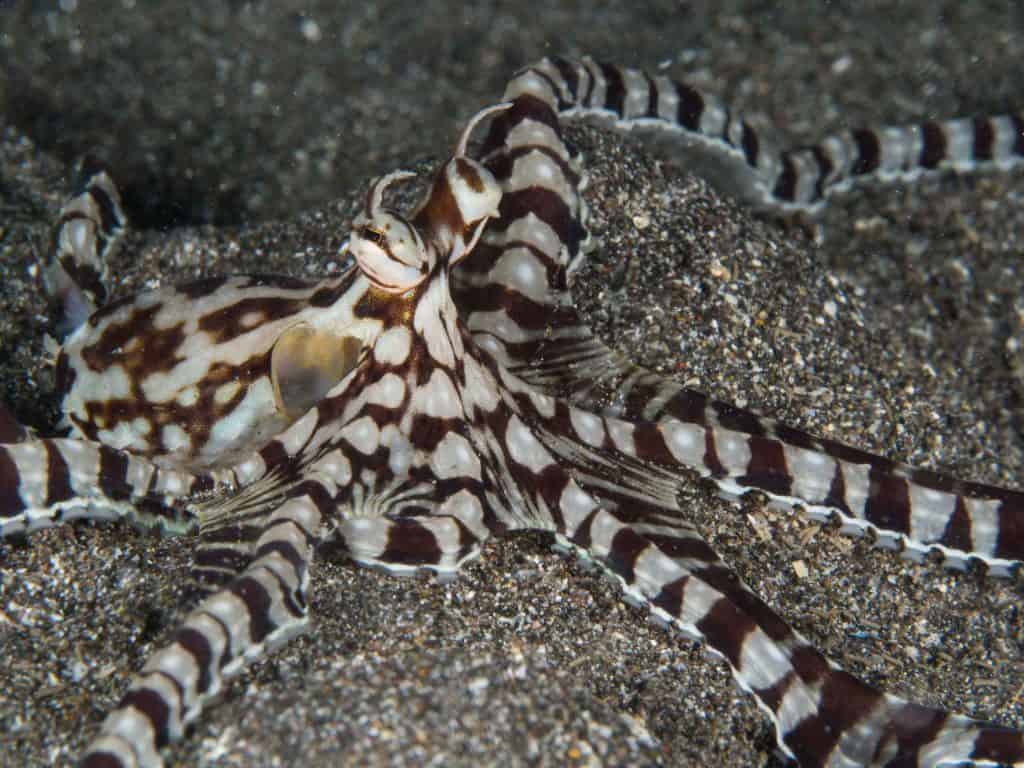
Extraordinarily Intelligent Creatures
It’s impressive enough that the Mimic Octopus can transform itself into other animals, but how do they decide which impersonation they will do?
These little octopuses are as smart as they are tricky, choosing to mimic the sea creature they think will scare off whatever is trying to eat them.
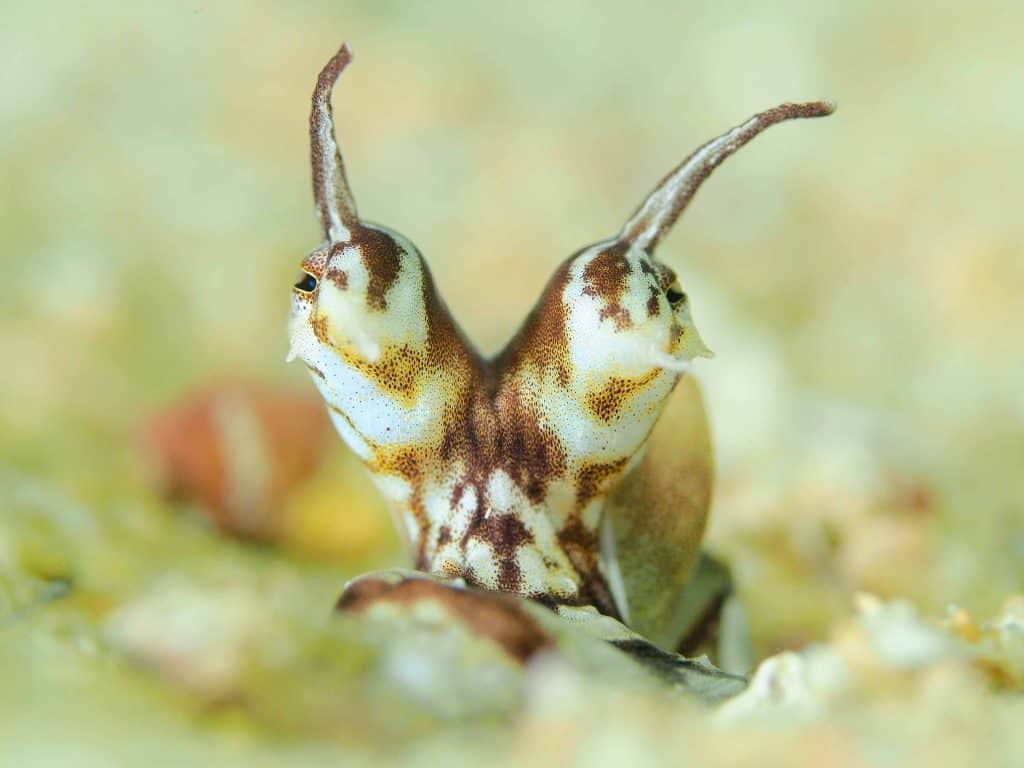
🐙 Octopus Fun Fact
Scientists observed this when a damselfish started attacking a Mimic Octopus who chose to turn itself into a banded sea snake, a known predator of the damselfish.
They Have HOW Many Bones?
With no rigid skeleton, this octopus species will put any yogi’s flexibility to shame.
The only hard part of an octopus’s body is its beak, which means its body configuration possibilities are endless.
🐙 Octopus Fun Fact
Being a squishy animal with a complex nervous system helps the Mimic Octopus get into all its crazy forms.
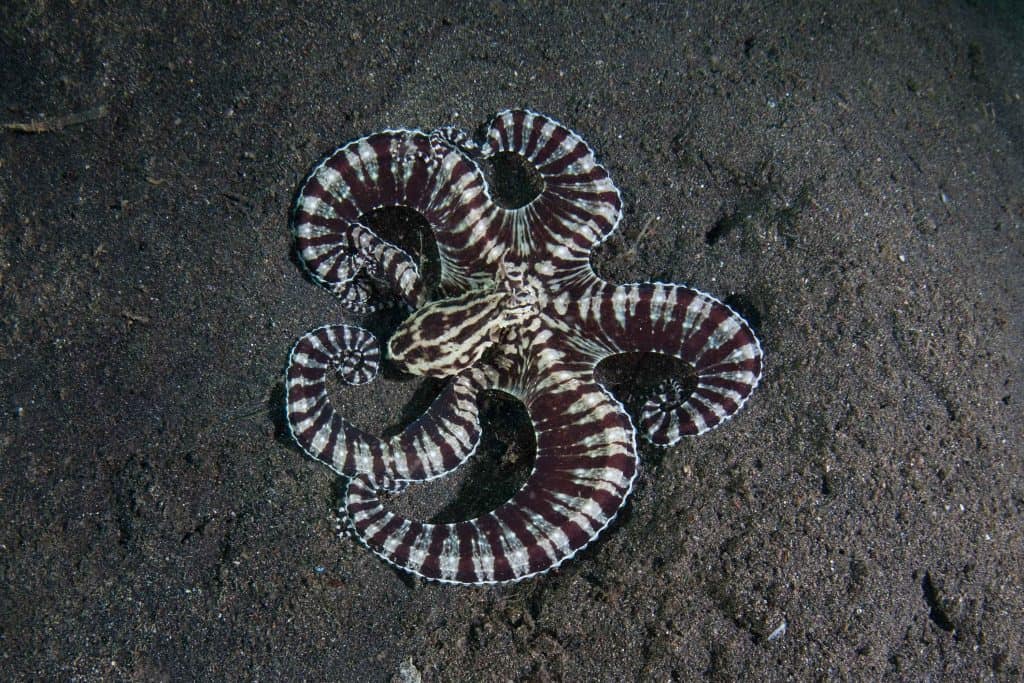
Born To Thrive In Mucky Environments
Unlike the stereotypical octopus who likes reefs with lots of crevices and holes to hide in, the Mimic Octopus prefers the mucky areas of river mouths and estuaries.
Because of its amazing abilities to change its color and behavior, along with easily being able to burrow into soft sediment, the Mimic Octopus doesn’t need to rely on structures to hide in. This makes wide-open silty ocean floors a perfect habitat for them.
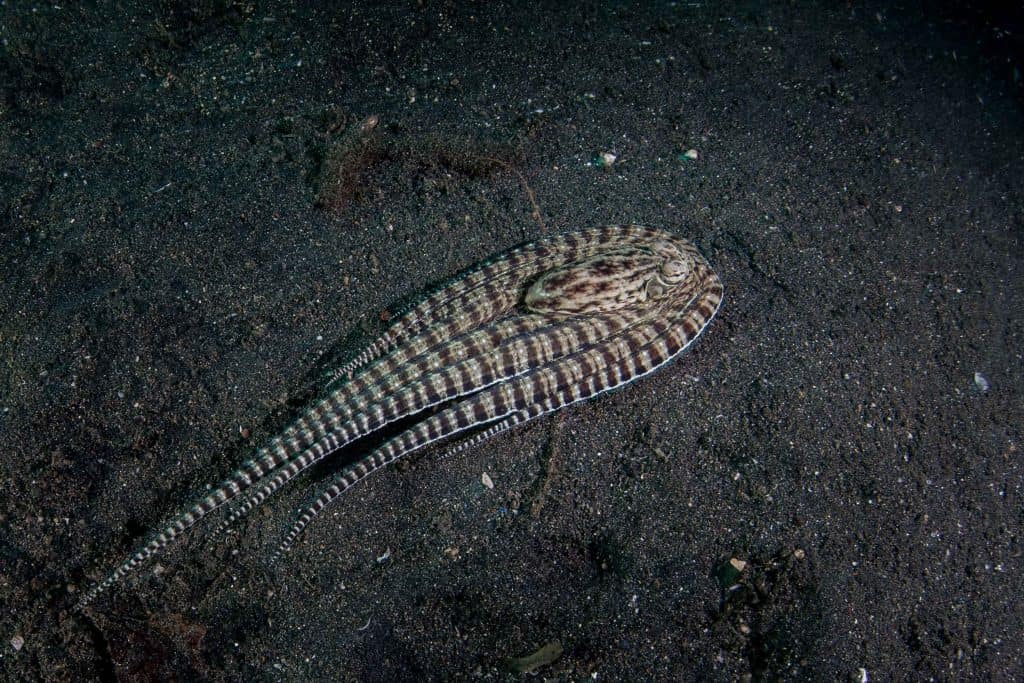
Males Have A “Special” Arm… ????
The Mimic Octopus only live for around 9 months so they have no time to waste when it comes to getting it on.
Males have a specialized arm that goes by the fancy name of Hectocotylus. They use this special sex arm to transfer their spermatophore, a little packet of sperm, to the female and deposit it into her mantle.
After mating, the Male Mimic Octopus’s hectocotylus falls off and they die shortly after. The female follows suit after laying her eggs which are left to fend for themselves until they hatch.
Babies pop out into the world without any protection and must learn their mimicking ways quickly to survive.
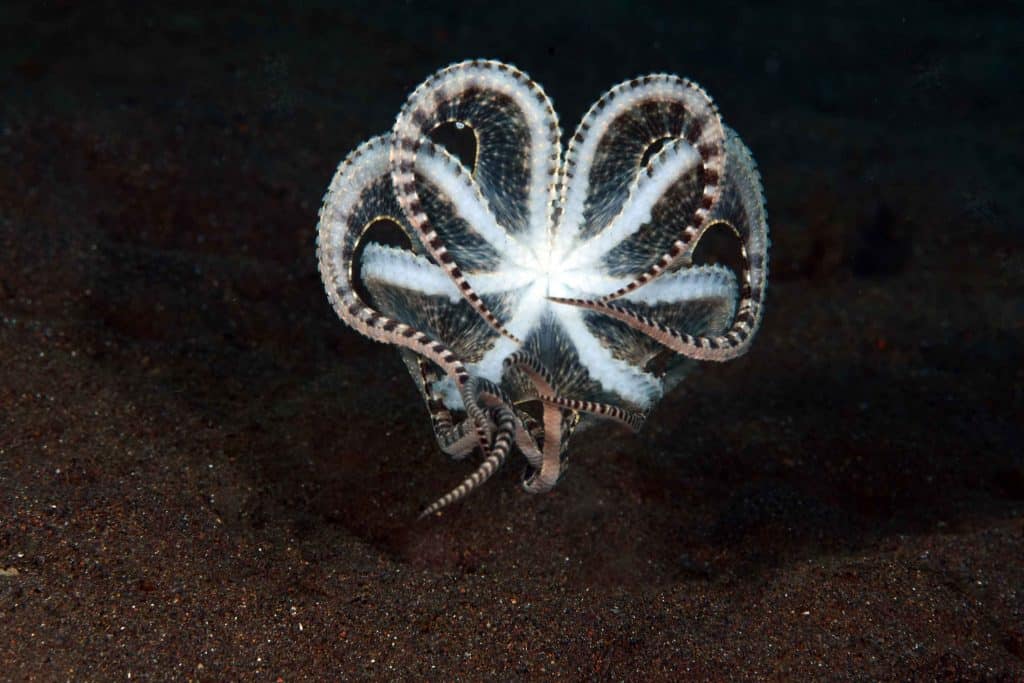
Mimic Octopus Fact: They Are A Famous Cartoon Character!
Grumpy, but lovable, Hank The Octopus from Finding Dory is based on the Mimic Octopus.
Are Mimic Octopuses Really The Caped Crusaders Of The Ocean Going Around Saving Fish?
They remained undiscovered for so long, what else are they getting up to that humans have not figured out yet?! We haven’t seen a Mimic Octopus driving a truck, but does that mean they aren’t doing it?
A biology professor, Ken Halanych, from Auburn University rated Hank’s truck driving scene in the movie as a 5 out of 10 for plausibility arguing that the octopus can survive a decent amount of time out of the water and have enough strength to operate a truck.
If the mimic octopus has taught us anything it’s that you can be whatever you believe yourself to be!
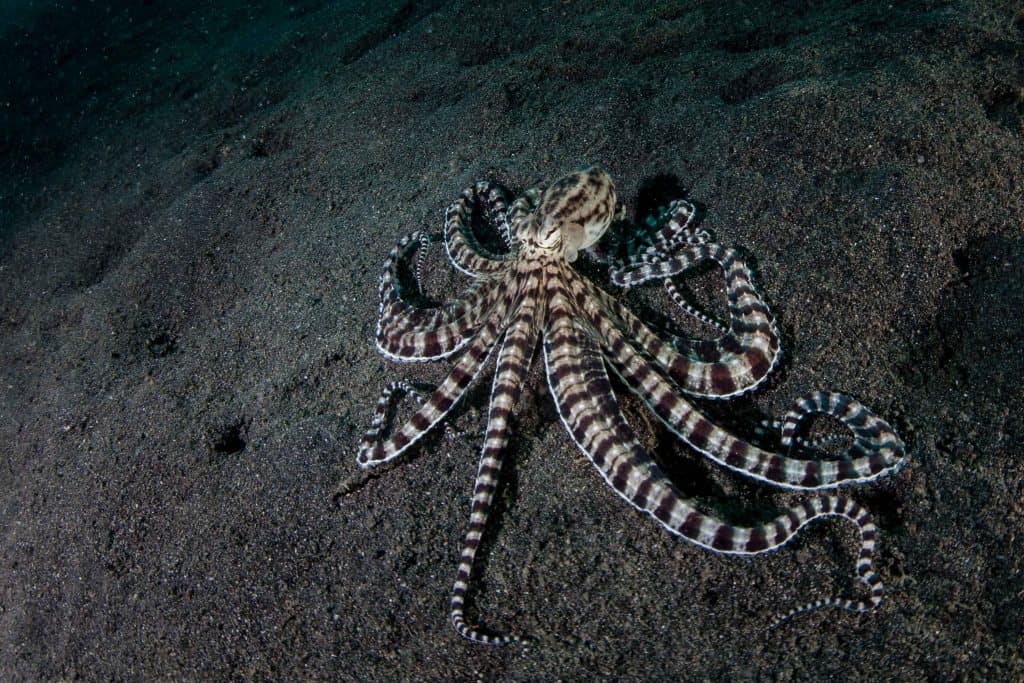
The Mimic Octopus: Majestic Or Sneaky?
Did you enjoy learning these Mimic Octopus facts?
If you want to educate yourself some more about all sorts of different cephalopods, take a look at our encyclopedia. Or, what we call it, our Octopedia!
Connect with other octopus lovers via the OctoNation Facebook group, OctopusFanClub.com! Make sure to follow us on Facebook and Instagram to keep up to date with the conservation, education, and ongoing research of cephalopods.
More Posts To Read:
If you enjoyed learning about The Mimic Octopus, we recommend taking a look at some of these other profiles:
- 9 Giant Pacific Octopus Facts That Will Blow Your Mind
- Super Fun Facts About The Female Blanket Octopus
- Fun Facts About The Strawberry Squid
- Octo Chef: What Do Octopus Eat?
- The Octo-Punch: The Truth Behind Why Octopuses Punch Fish
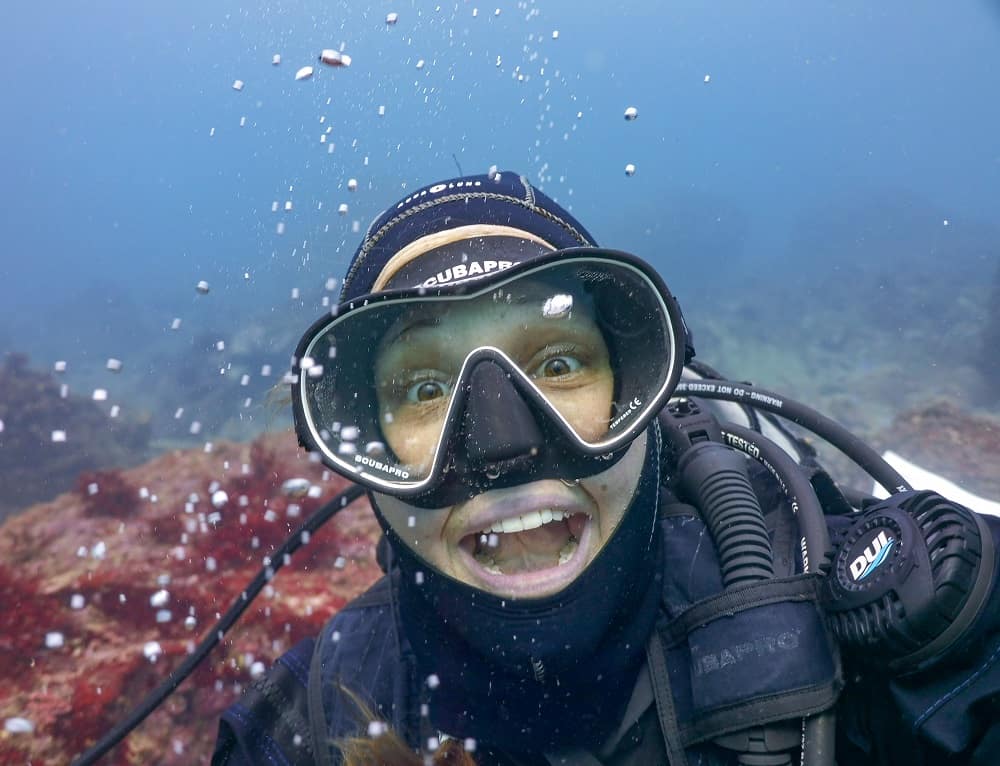
Corinne is a biologist with 10 years of experience in the fields of marine and wildlife biology. She has a Master’s degree in marine science from the University of Auckland and throughout her career has worked on multiple international marine conservation projects as an environmental consultant. She is an avid scuba diver, underwater photographer, and loves to share random facts about sea creatures with anyone who will listen. Based in Japan, Corinne currently works in medical research and scientific freelance writing!
